Patty J Guided By Collette: The Abbey At Monte Cassino, Italy
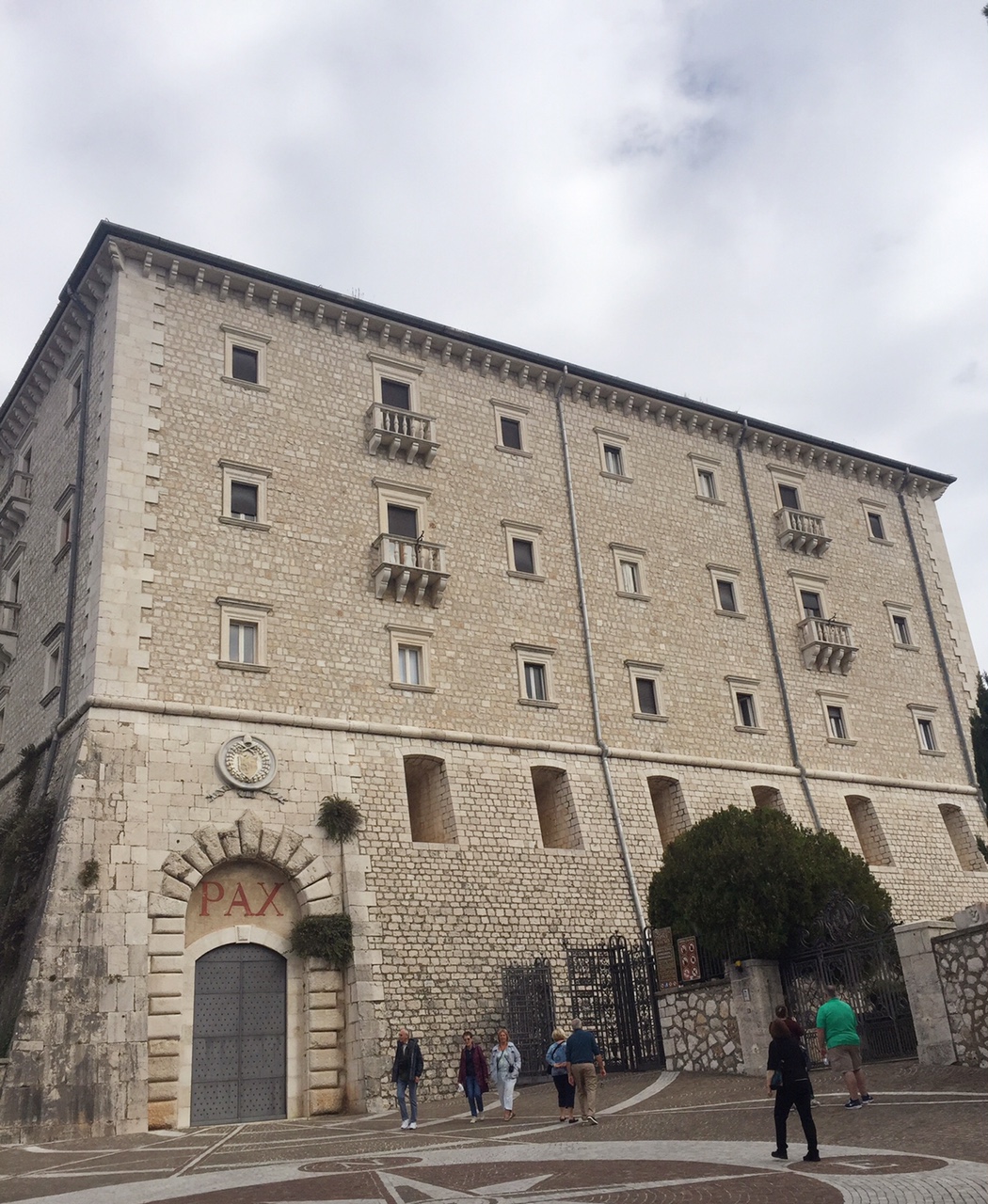
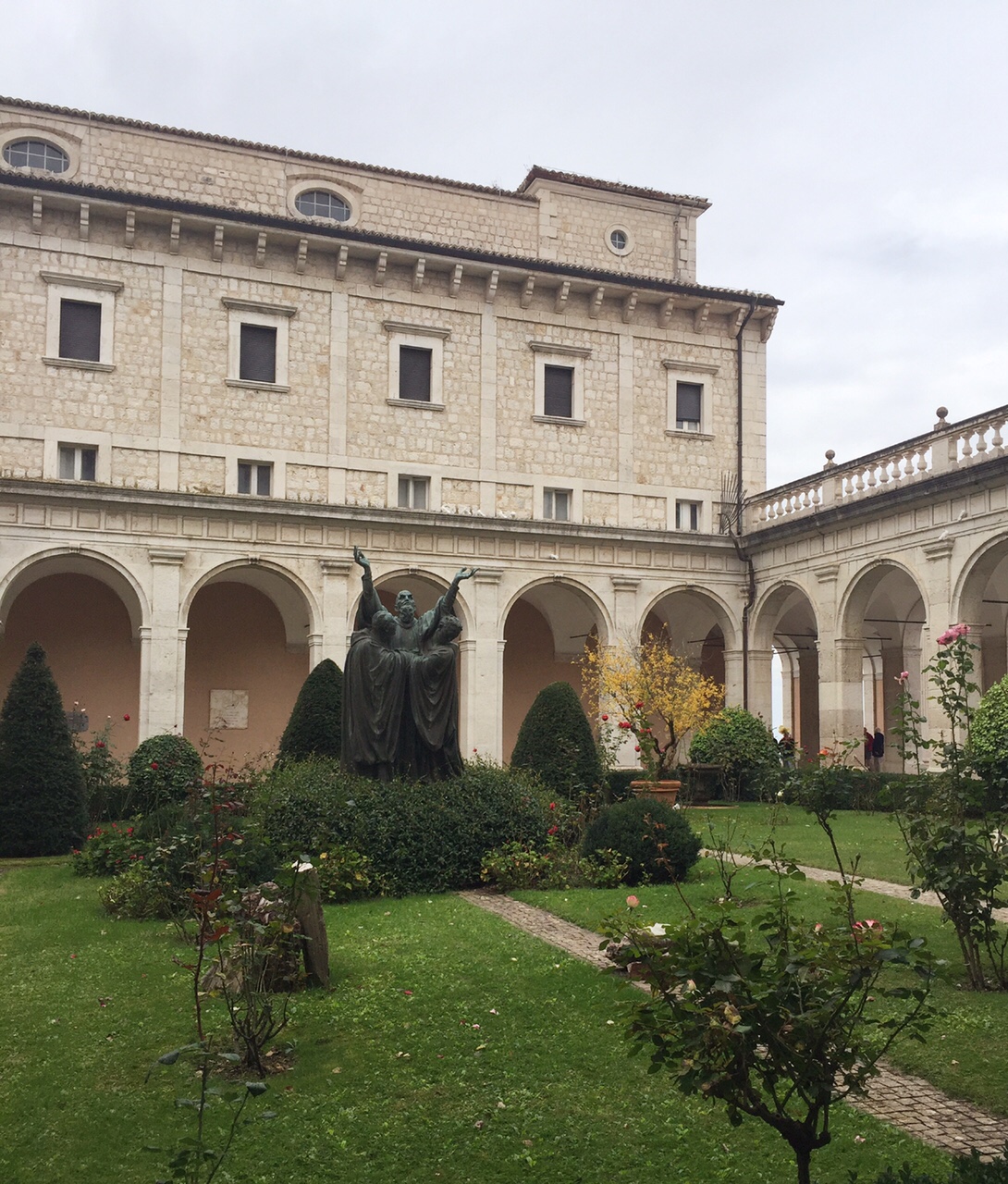
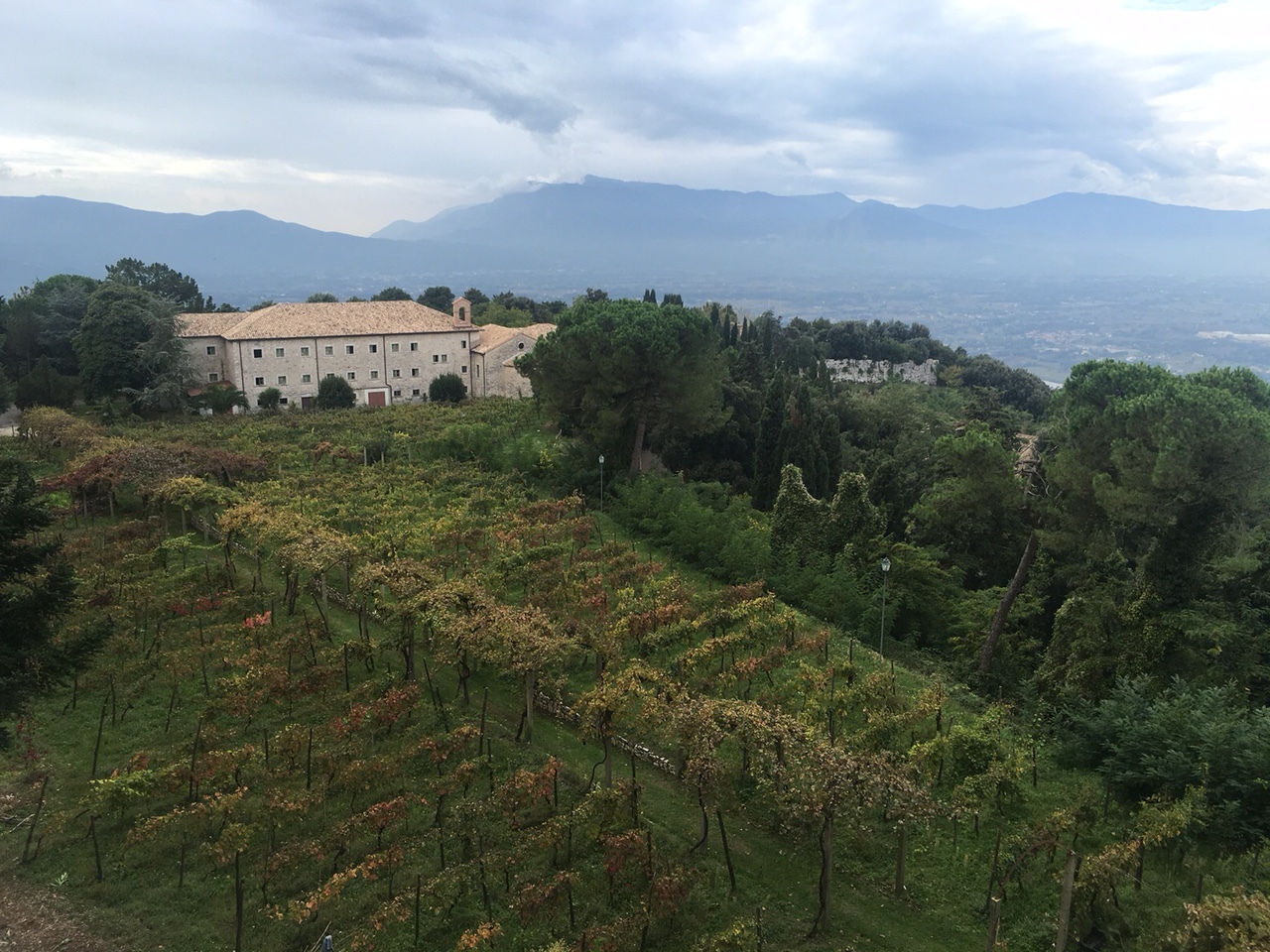
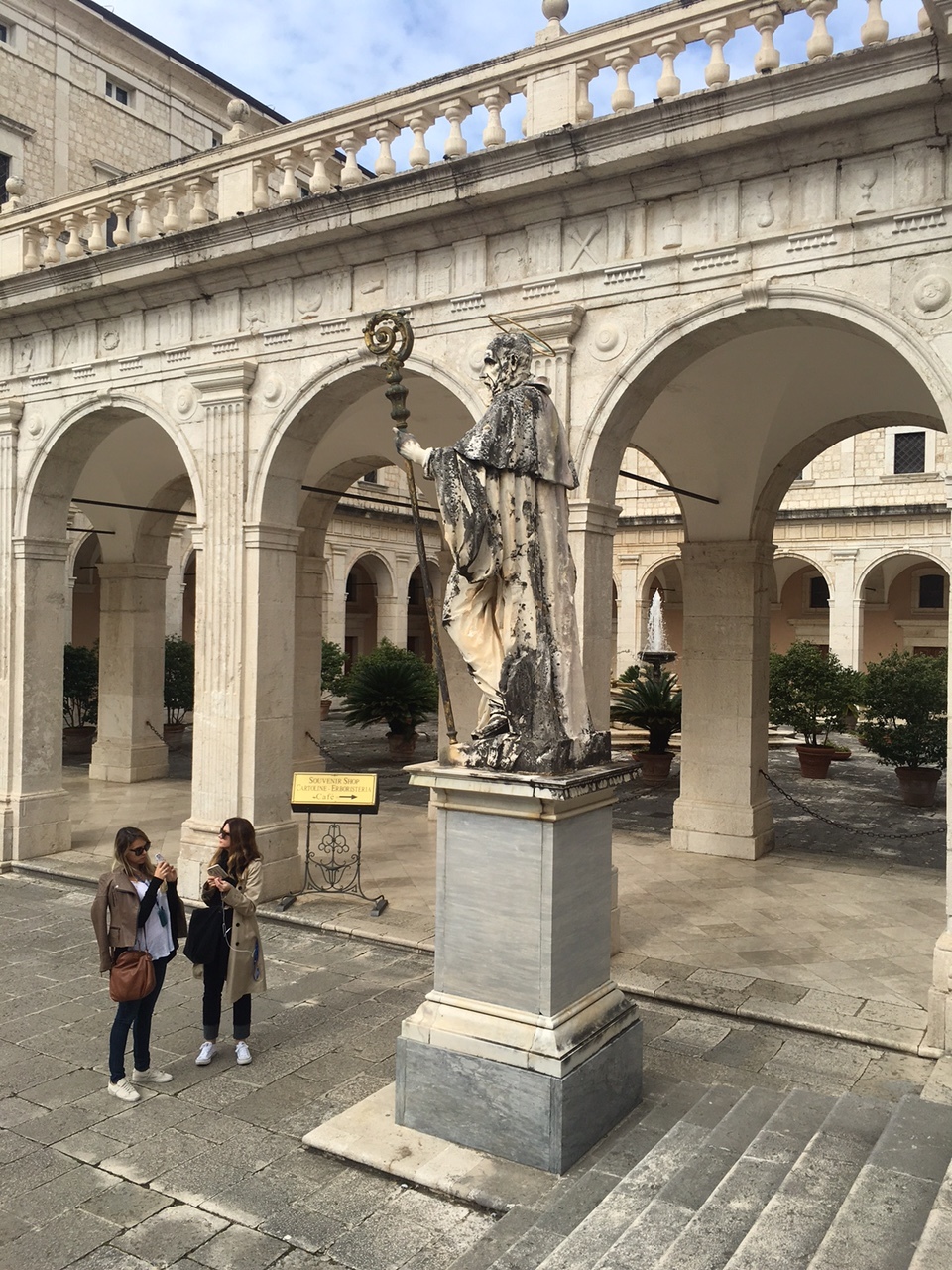
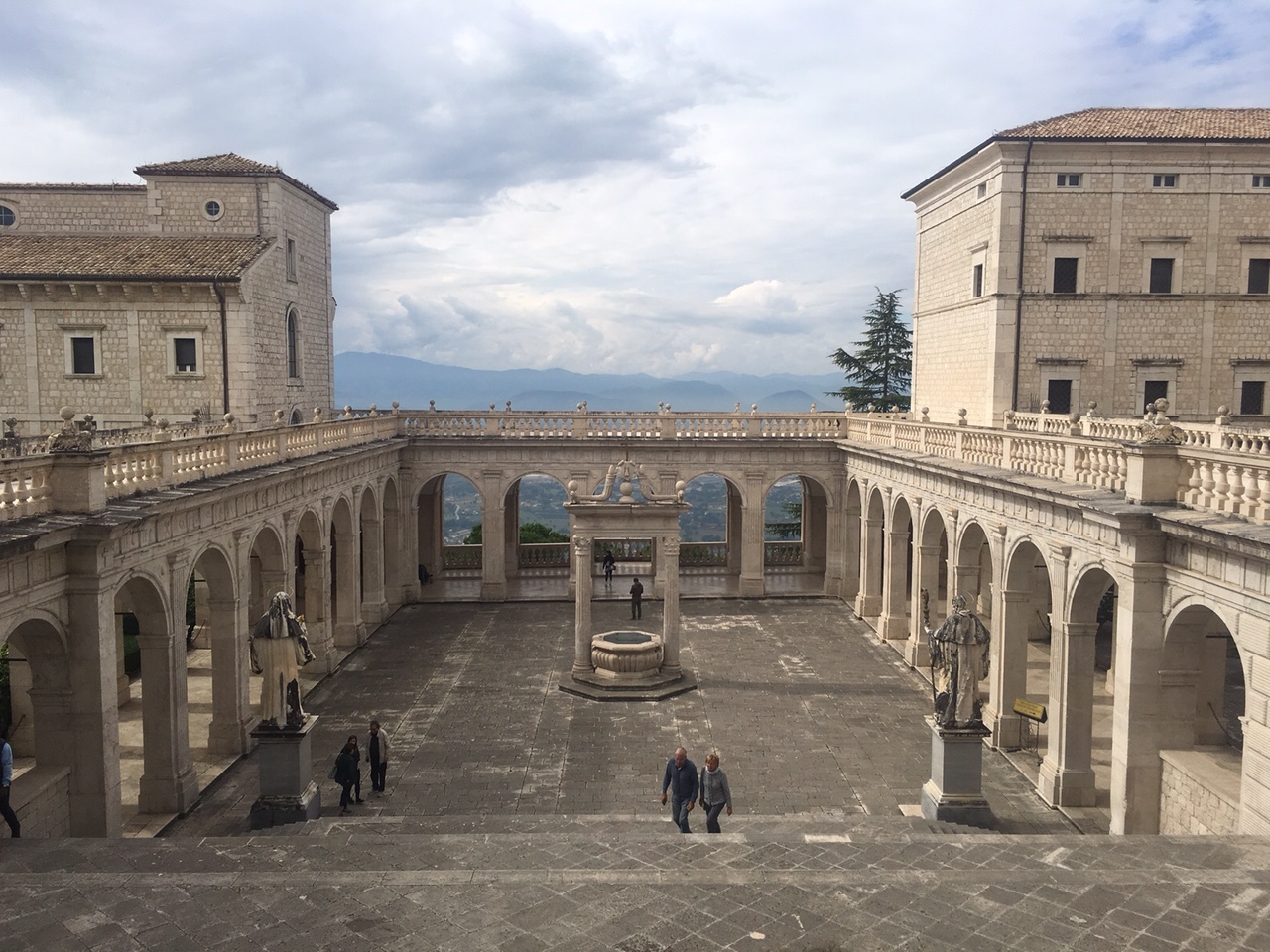
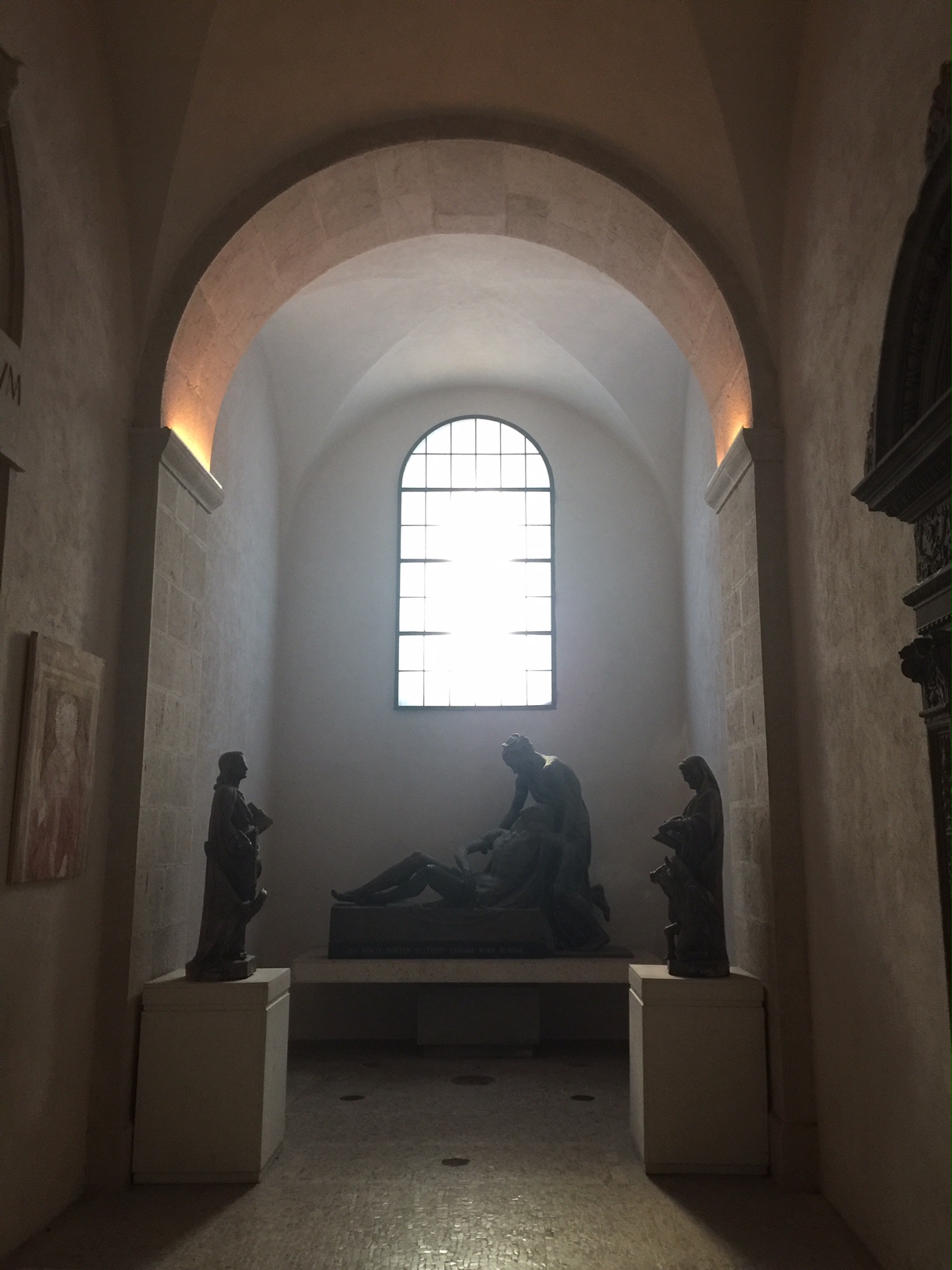
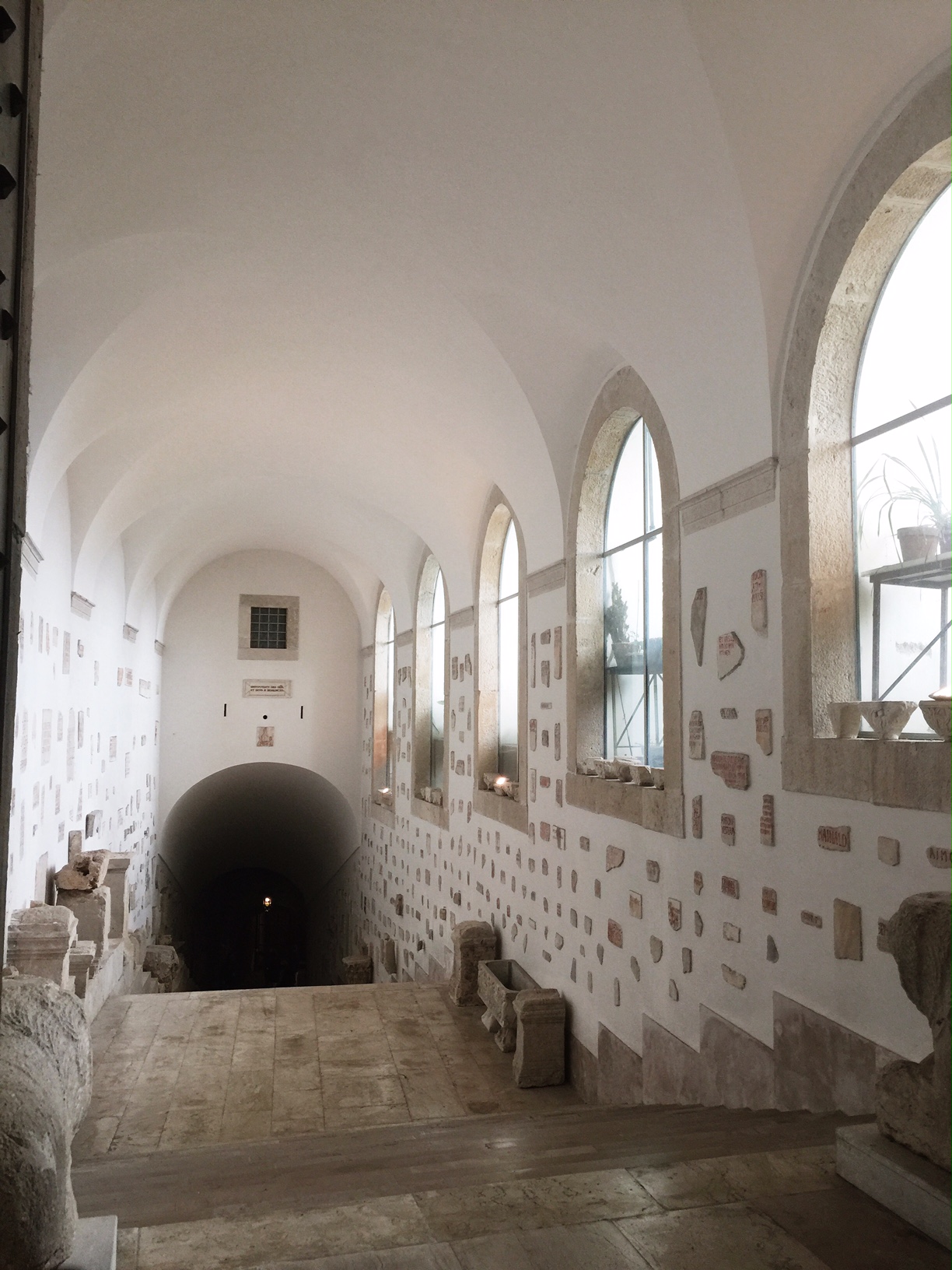

Rome & Amalfi #GoCollette Tour, Day 2: The Abbey at Monte Cassino, established in 529 AD by Saint Benedict, the patron saint of Europe and author of Rule, which would go on to become the foundation for monastic rules throughout medieval Europe. It's been described as 'the world's most glorious monastary'. In other words, a must see for anyone who's a history, art & architecture fan. And on their way from Rome to Naples and Amalfi.
Yesterday, we had yet another fantastic local guide, Patrizia, taking us thru the Montecassino Monastery in the Italian countryside, about 45 mins outside Rome. (She knew her stuff!) It's fascinating to walk the grounds (The 12 monks who currently reside there are also growing grapes used to make wine not to sell to visitors, but to be used during the masses. Photo above.) and the stunning interiors, especially after hearing that the structures (all except for one area...more about that in a sec) have been destroyed (most recently, during WWII bombing raids) 4 times and subsequently rebuilt. **Look for the statutes that were blown up during the war and then, literally put back together piece by piece.**
That one building we just mentioned, still standing today, housed the private cell (aka, chamber) of St Benedict, whose remains are buried, along with those of his twin sister St Scholastica, under the alter in the post 2nd World War restored church on the premises. (Think lots of murals, accented with lots of gold. Don't even think about taking any flash photos inside the church however. Prohibited because of potential damage to the paintings, etc.) People still make pilgrimages to pray to their relics in fact.
Another perk of traveling with Collette is that we got to see that private chamber which is NOT open to the general public. It's where one of the many miracles attributed to Saint Benedict is said to have taken place too. As the story goes (paraphrasing of course), as he was about to fall onto concrete and injure himself (in his writing arm/hand, the same one used for composing his Rules), the concrete suddenly turned soft. So, instead of any injury (which might have prevented him from finishing THAT extremely influential work), he walked away unscathed, leaving only an imprint of his body, still visible today, in the concrete.
Definitely go and see for yourself, but be sure to have your coffee that morning and wear sneakers or flats with lots of support because we climbed no less than 125 steps (probably more) getting in and out of various areas of the Abbey. (A great way to burn off some of that gelato, ricotta pie or gnocchi from the night before's dinner in Rome. Just. Sayin.)
Ciao for Now,
Team Patty J
Photo Credits: Photos courtesy of @richmondxdxj
